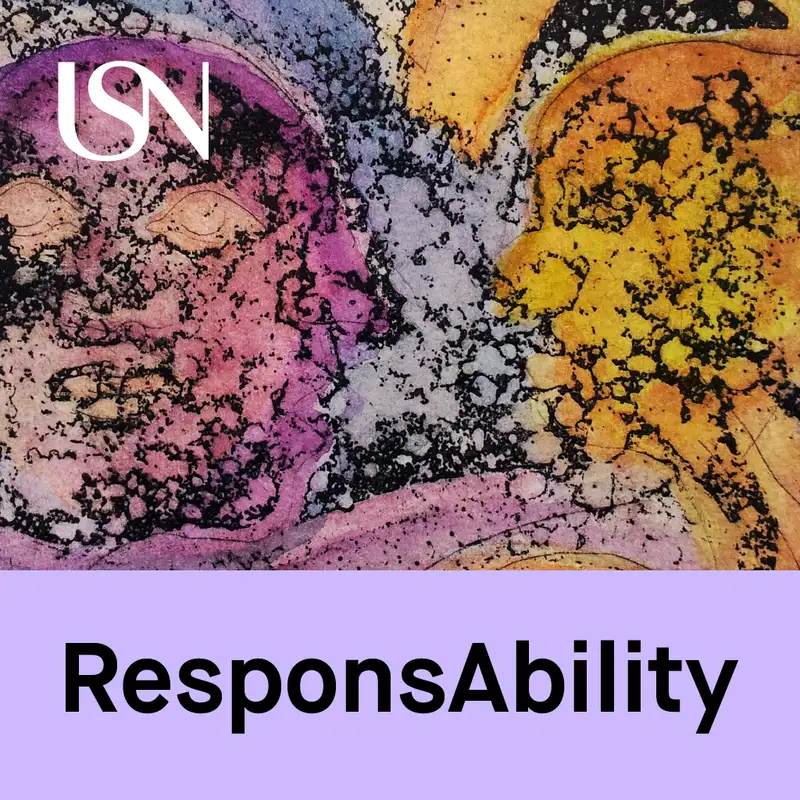#12 Bernadette Flanagan | Why Spirituality and Contemplative Studies Matter for Today's Professionals
TRANSCRIPT SUMMARY
(This transcript summary was AI-generated and then edited by the podcast hosts for quality assurance)
#12 BERNADETTE FLANAGAN | WHY SPIRITUALITY AND CONTEMPLATIVE STUDIES MATTER FOR TODAY'S PROFESSIONALS
- a podcast dialogue with Michael Noah Weiss and Guro Hansen Helskog
INTRODUCTION
In this thought-provoking episode, Bernadette Flanagan—an internationally recognized scholar in spirituality and contemplative studies—joins hosts Michael Noah Weiss and Guro Hansen Helskog to explore the role of spirituality in society and professional life. Drawing from her experience as a researcher, educator, and editor of leading handbooks in the field, Flanagan offers a rich perspective on how spirituality intersects with responsibility, education, and public life.
WHAT IS SPIRITUALITY?
Flanagan begins by emphasizing that spirituality defies a single definition. For some, it’s a search for meaning beyond institutional religion; for others, it’s tied to mystical or indigenous traditions. She points to Ireland’s Celtic spirituality and its connections to other indigenous worldviews as examples of spirituality grounded in relationship with land and mystery. Rather than settling on one meaning, she suggests that spirituality is a "scaffolded" concept—built and reshaped through personal and cultural frameworks.
SPIRITUALITY IN PROFESSIONAL PRACTICE
Far from being confined to private life, Flanagan argues that spirituality plays a vital role in many professions. In fields like nursing, teaching, leadership, and even neuroscience or computer science, spirituality offers space for essential human qualities such as presence, kindness, and humility. These traits, while often overlooked in technical training, are foundational to ethical and effective practice.
She also notes the rise of interest in contemplative practices—like meditation—and their biological benefits, including enhanced resilience and well-being. While commercial platforms now offer “technologies of the self” to foster mindfulness, Flanagan reminds us of the deeper traditions behind these practices and their relevance in high-stress professions.
FACING THE “POLYCRISIS”
Situating spirituality in today’s context, Flanagan introduces the term “polycrisis” to describe the overlapping global challenges we face—climate change, inequality, violence, and more. These complex, interconnected problems resist simple solutions. Spiritual and contemplative practices, she suggests, can help people remain grounded and resilient, offering inner stability in a time of profound external instability.
SPIRITUALITY AND CONTEMPLATIVE PRACTICE
Flanagan distinguishes spirituality—a broad, often personal quest—from contemplative practice, which refers to more structured traditions rooted in wisdom lineages such as Christianity, Buddhism, or Hinduism. While contemplative studies often focus on established practices, spirituality includes emerging and indigenous paths as well. Both, she says, offer valuable tools for personal insight and ethical reflection.
For professionals, practices like Lectio Divina or Visio Divina—centuries-old meditative techniques—can serve as meaningful ways to reflect on emotionally demanding work. Such methods bring structure and depth to self-examination in the service of responsible action.
RESEARCHING SPIRITUALITY: METHODS AND APPROACHES
Flanagan highlights her work editing the Routledge Handbook of Research Methods in Spirituality and Contemplative Studies. She discusses the importance of methodologies like contemplative inquiry and cooperative inquiry, which reflect a belief in “evolutionary knowing”—a view that knowledge develops through dialogue with changing realities.
These approaches align closely with action research traditions, promoting openness to the unknown and emphasizing knowledge as relational and adaptive—essential qualities for research in rapidly shifting social and professional environments.
THREE RESEARCH PERSPECTIVES
To deepen understanding, Flanagan outlines three modes of inquiry:
- First-person: Focused on the researcher’s own spiritual journey, using methods like autoethnography or intuitive inquiry.
- Second-person: Emphasizing relational and dialogical methods—seen in coaching, therapy, or group work, and especially valuable in art- and nature-based research.
- Third-person: Classical observational approaches that study practices from an external or detached perspective.
She stresses the value of combining these approaches, depending on the context and purpose of the research.
SUPERVISION AS A CONTEMPLATIVE PRACTICE
Reflecting on her supervision of over 300 dissertations, Flanagan describes how each student project has shifted her understanding of the world. She shares how one student’s work on the spirituality of flowers awakened her to nature in a new way. For her, research supervision is more than an academic role—it has become a contemplative practice that opens up fresh dimensions of awareness through the lens of others’ inquiry.
FLANAGAN’S PERSONAL JOURNEY
Flanagan’s own path into spirituality studies was not straightforward. Originally trained in mathematics and theology, she began with a focus on improving math education for girls. When statistical research didn’t unfold as planned, she pursued a master’s in spirituality—which unexpectedly became her life’s work. This shift allowed her to bridge her interest in science with her growing fascination with inner life and meaning-making.
BUILDING A SPIRITUALITY LIBRARY
Flanagan also speaks about the Spirituality Institute for Research and Education in Ireland, which houses a specialized library dedicated to the interdisciplinary field of spirituality. She notes that standard academic systems often fail to adequately catalog spiritual literature, making access difficult. This library serves as a much-needed hub for global research and teaching in a still-emerging academic discipline.
SPIRITUALITY AND PROFESSIONAL RESPONSIBILITY
Linking spirituality to the global Sustainable Development Goals (SDGs) and the Inner Development Goals (IDGs), Flanagan stresses that solving outer crises demands inner transformation. Spiritual and contemplative practices cultivate empathy, presence, and ethical reflection—capacities that are critical for today’s professionals.
For teachers, nurses, engineers, and others, spiritual development isn’t an add-on—it’s central to responsible, effective practice in a complex world. As Flanagan puts it, “inner development leads to outer effectiveness.”
CONCLUSION
Bernadette Flanagan offers a compelling case for integrating spirituality into professional and academic life. Her work highlights the power of contemplative practice, the necessity of plural research methods, and the urgent need to develop inner resilience in the face of global challenges. Far from being a private concern, spirituality, she argues, is a public and professional good—essential for living and working responsibly in today’s world.
